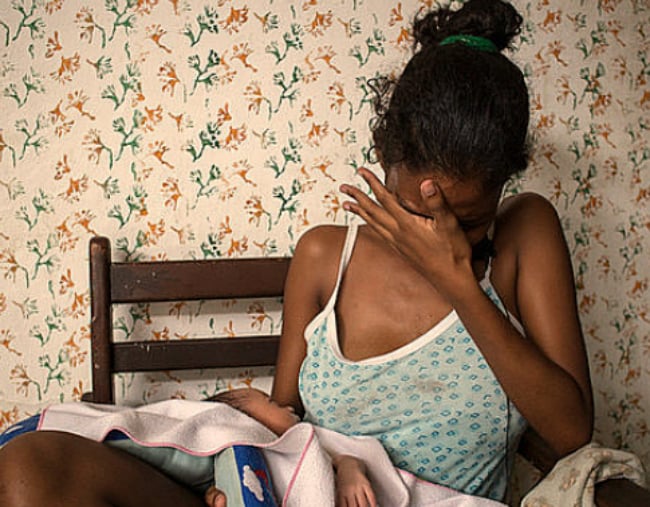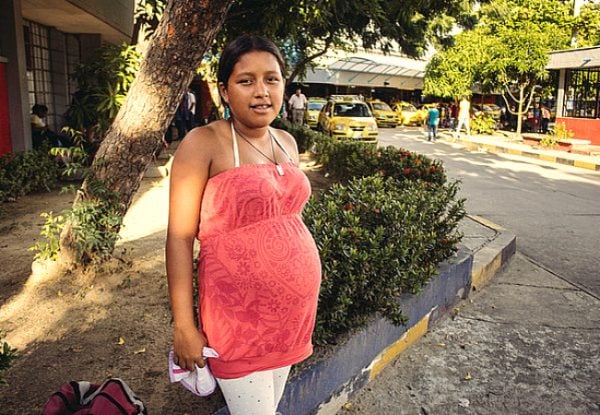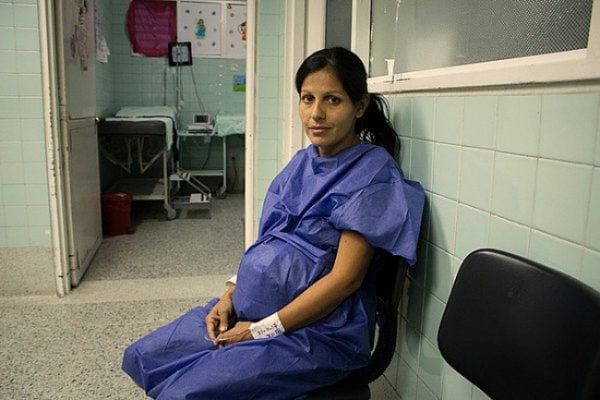
The day she gave birth in Colombia, Ana Madriz, a 21-year-old Venezuelan woman, felt that this country may have saved her life.
Holding her newly-born daughter in her arms, she met me a few days later, eyes shining, on the patio of her house in Cúcuta, Colombia. Her magical smile hid what her eyes could not hide: the suffering caused by having to leave her old life behind because she was afraid to stay and not live to tell the tale.
Ana is part of a silent but revealing phenomenon in the Venezuelan diaspora: an exodus of thousands of pregnant women, fleeing from hospital facilities that have no equipment.
Instead of enjoying their daily bread, women in Venezuela face the daily drama of maternal mortality.
The Venezuelan government has not published public health data for years. However, at the start of 2017, the authorities accidentally published a health bulletin that listed maternal mortality figures.
Although it was immediately taken down from the health ministry’s webpage in response to the scandal caused by the figures, the truth was out.
Between 2015 and 2016, maternal mortality increased by 65 per cent in Venezuela, wiping out recent advances and returning to the situation that prevailed 25 years ago.
The Out Loud crew discuss why we need to start talking about Syria again. Post continues after audio…
The causes include the lack of medicines such as anticoagulants, scar healing cream, painkillers, antibiotics, antiseptics; the lack of basic medical tools and equipment, such as scalpels, needles and gloves; and the ever falling number of medical personnel willing to work with no equipment and without pay.




Top Comments
Look at Venezuela now and you'll see Australia's future.
Hopefully not, but here something I have been contemplating the last few days since I discovered it about Australia - we are currently second, but by 2020 we will be the biggest producer of natural gas in the world, surpassing Qatar. But Qatar takes in 48 billion in export revenue and we will only take in 36 billion - how do you account for that 12 billion, could it be the crappy contracts that were negotiated by our bureaucrats? We pay more for our own natural gas in Australian than they do in Tokyo. We are also looking at spending over 100 billion on the NBN which will probably go down as the biggest failure of infrastructure in the modern world. Yet we allow our useless politicians to get away with bad policy decisions and its the taxpayers who pay and the people who miss out. Similarly, Venezuela is the nation with the biggest known oil resources - 300 billion barrels, yet it is almost a failed nation state. This should not be rocket science, yet here we are, and its the people that suffer.
I wouldn’t even joke about something like that. The crisis in Venezuela is critical and faced by very few countries anywhere. Sadly it takes years of corruption to get to this level of desperation and even longer for anyone outside to do anything about it, if ever.
Sadly I'm not joking.
How do we stop it? Unfortunately too few people take an interest in politics, they just look at the 6pm news bites then forget about it.
People should think very carefully before they vote, but the calibre of politicians is so poor I think they just give up.
I’d say the maternal mortality rates were not put up accidentally, but deliberately leaked by an insider.